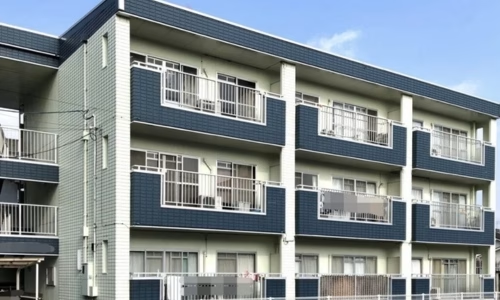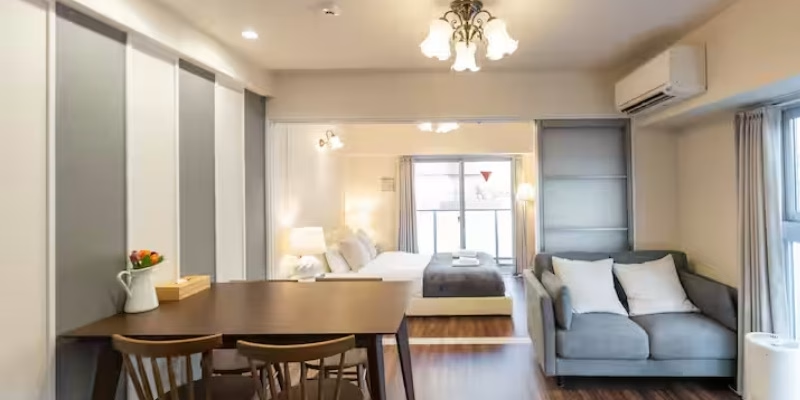Renting a house in Japan can feel challenging for newcomers, especially with unique rental rules, paperwork, and cultural norms. This guide answers common questions about the Japan rental process so you can confidently secure your next home.
What Are the Basic Requirements for Renting a Property in Japan?
Before you begin your home search in Japan, it’s crucial to understand the criteria most landlords set for potential tenants. Knowing these expectations allows you to prepare your documents in advance and avoid unnecessary rejections.
In general, property owners prefer renters who can demonstrate a reliable source of income or long-term employment, ensuring they can meet monthly rent payments. Tenants are also expected to hold a valid legal residency status in Japan, typically verified through an up-to-date Residence Card (在留カード).
Another near-universal condition is having a guarantor or a guarantor company to safeguard the landlord’s interests if the tenant fails to pay rent on time.

Personal Guarantor (保証人 – Hoshōnin)
A personal guarantor is typically an individual, such as a family member, friend, or colleague living in Japan, who agrees to take financial responsibility if the tenant cannot pay rent or causes property damage.
- Requirements: Must be a Japanese citizen or a long-term resident with steady income and a good credit history.
- Advantages: No service fee required.
- Drawbacks: Can be difficult to find someone willing to take on this responsibility, especially for newcomers with limited connections in Japan.
Rental Guarantee Company (保証会社 – Hoshōgaisha)
A guarantor company is a professional service provider that fulfills the same role as a personal guarantor. When you rent a property, the company signs an agreement with both you and the landlord, covering rent payments if you default.
- Requirements: Payment of an initial service fee (usually 50%–100% of one month’s rent) plus an annual renewal charge.
- Advantages: Easy to arrange, no need to rely on acquaintances.
- Drawbacks: Involves upfront and recurring costs.
Tip for foreign renters: Meeting these requirements, steady income, legal residency, and a guarantor arrangement, right from the start significantly improves your chances of passing the screening process and securing a lease in Japan.
Which Documents Do Foreign Residents Need to Prepare?
When applying for a rental property in Japan, landlords and real estate agencies require specific documents to verify your identity, legal status, and financial stability. Preparing these in advance will make the application process smoother and faster.
The items most often in demand are:
- Residence Card (在留カード) – Proof of your legal residency status in Japan, including your visa type and expiration date.
- Passport – Used for identity confirmation and as an additional form of official identification.
- Certificate of Employment or Proof of Income – Such as a recent payslip, tax statement, or employment contract, demonstrating your ability to pay rent consistently.
- Emergency Contact Information in Japan – A local contact person the landlord or property manager can reach in case of urgent matters.
Organizing all these documents beforehand shows property owners that you are a well-prepared, trustworthy, and responsible tenant, qualities that greatly improve your chances of getting approved.
Understanding Japan’s Rental Application Process
In Japan, renting a home involves a structured process with several important stages. Understanding each step can help you prepare in advance and avoid delays.
- Search for a Property – Start by browsing listings on real estate websites, mobile apps, or by visiting local property agencies in your preferred area.
- Submit an Application – Once you’ve found a suitable home, provide your personal information along with all required documents, such as your residence card, passport, and proof of income.
- Tenant Screening – The landlord or property management company will review your application, checking your employment status, creditworthiness, and guarantor arrangements.
- Sign the Lease Agreement – If your application is approved, you’ll meet with the agent or landlord to sign the rental contract, review the terms, and pay initial fees.
- Move-In Inspection & Key Handover – Before moving in, an inspection is conducted to record the property’s condition. After everything is finalized, you’ll get the keys to your new place.
By following these steps carefully and preparing your documents early, you can make the entire rental process in Japan smoother and less stressful.
Why Is a Guarantor Important When Signing a Lease?
In Japan, having a guarantor is an important requirement when renting an apartment. A guarantor is responsible for covering rent payments or damages if the tenant is unable to pay. This system provides landlords with peace of mind and reduces the risk of unpaid rent.
For many foreigners who do not have family or close contacts in Japan, the most practical option is to use a guarantor company. These companies act as your guarantor for a relatively small monthly fee, usually around 1% to 2% of your monthly rent (depending on the rental price). Without a guarantor or guarantor company, renting a property can be difficult, as most landlords will reject applications that do not meet this requirement.
If you want to avoid this step, you can look for “no-guarantor company apartments”, rental listings that do not require a guarantor company. However, such properties are less common and may come with higher rent or stricter conditions. Understanding the guarantor system before starting your apartment search in Japan can save you time and improve your chances of getting approved.

What Fees and Deposits Should Tenants Expect to Pay?
When signing a lease in Japan, it’s important to prepare for high upfront costs. These expenses often go beyond just the first month’s rent and may include:
- Security Deposit (Shikikin) – A refundable deposit held by the landlord to cover potential damage or unpaid rent.
- Key Money (Reikin) – A non-refundable payment given to the landlord as a “thank you” for renting the property.
- Agency Fee – A commission paid to the real estate company for arranging the rental.
- First Month’s Rent – Usually required in advance before moving in.
In recent years, some modern apartments, especially those targeting foreigners, have started waiving key money to make rentals more affordable. However, it’s still wise to budget for these traditional costs when planning your move to Japan.
Where Can Foreigners Search for Available Apartments or Houses?
Foreigners in Japan have several reliable options when looking for a home:
- Real estate websites with English support – Ideal for first-time renters who aren’t fluent in Japanese.
- Local real estate agencies near your preferred area – Agents often know about new listings before they appear online.
- Expat communities and housing forums – Great for finding foreigner-friendly rentals and getting insider tips from other residents.
Tip: If you can search in Japanese, you’ll often find more listings at better prices, as some properties are only advertised on local platforms.
How Long Is the Typical Rental Contract in Japan?
Most rental agreements in Japan last for two years and include a renewal fee, typically equal to one month’s rent. Carefully review the lease for early termination terms to prevent extra charges.
What Should Tenants Check Before Moving Into a New Place?
Before finalizing the rental agreement, take time to thoroughly inspect the apartment or house. Check that all appliances, electrical outlets, and plumbing fixtures are in proper working condition. Carefully examine walls, floors, windows, and doors for any cracks, stains, or signs of wear. If you notice any existing damage, take clear photos and share them with the landlord to avoid disputes later. Additionally, go through the lease agreement in detail, paying close attention to clauses regarding pets, guest stays, maintenance responsibilities, and renovation permissions.

Are There Housing Options Without a Guarantor?
Yes. While most rental agreements in Japan traditionally require a guarantor, there are increasing numbers of “foreigner-friendly” housing options that waive this requirement. These properties are especially popular among short-term residents, international students, and newcomers who may not have local contacts or a Japanese guarantor company.
Many real estate agencies now specialize in such rentals, offering fully furnished apartments, flexible lease terms, and simplified application processes. Choosing a guarantor-free apartment can save both time and upfront costs, making it easier to settle in quickly when moving to Japan.
How Can Renters Increase Their Chances of Getting Approved?
Securing an apartment in Japan can be competitive, especially for foreigners unfamiliar with the rental process. To improve your chances of approval, start by applying for properties that fit comfortably within your budget. Landlords often look for tenants whose monthly rent is no more than one-third of their income.
Always prepare proof of stable employment or consistent income, such as recent payslips or tax returns, to show financial reliability. Make sure all your application documents are complete and accurate, as missing or incorrect details can lead to rejection. Finally, consider working with a bilingual real estate agent who can bridge communication gaps, explain contract terms clearly, and negotiate with landlords on your behalf.
Final Thoughts
Learning how to rent a house in Japan can make the process easier and less stressful. With the right preparation, good communication, and realistic expectations, securing your ideal home in Japan is entirely possible.






Leave a Reply